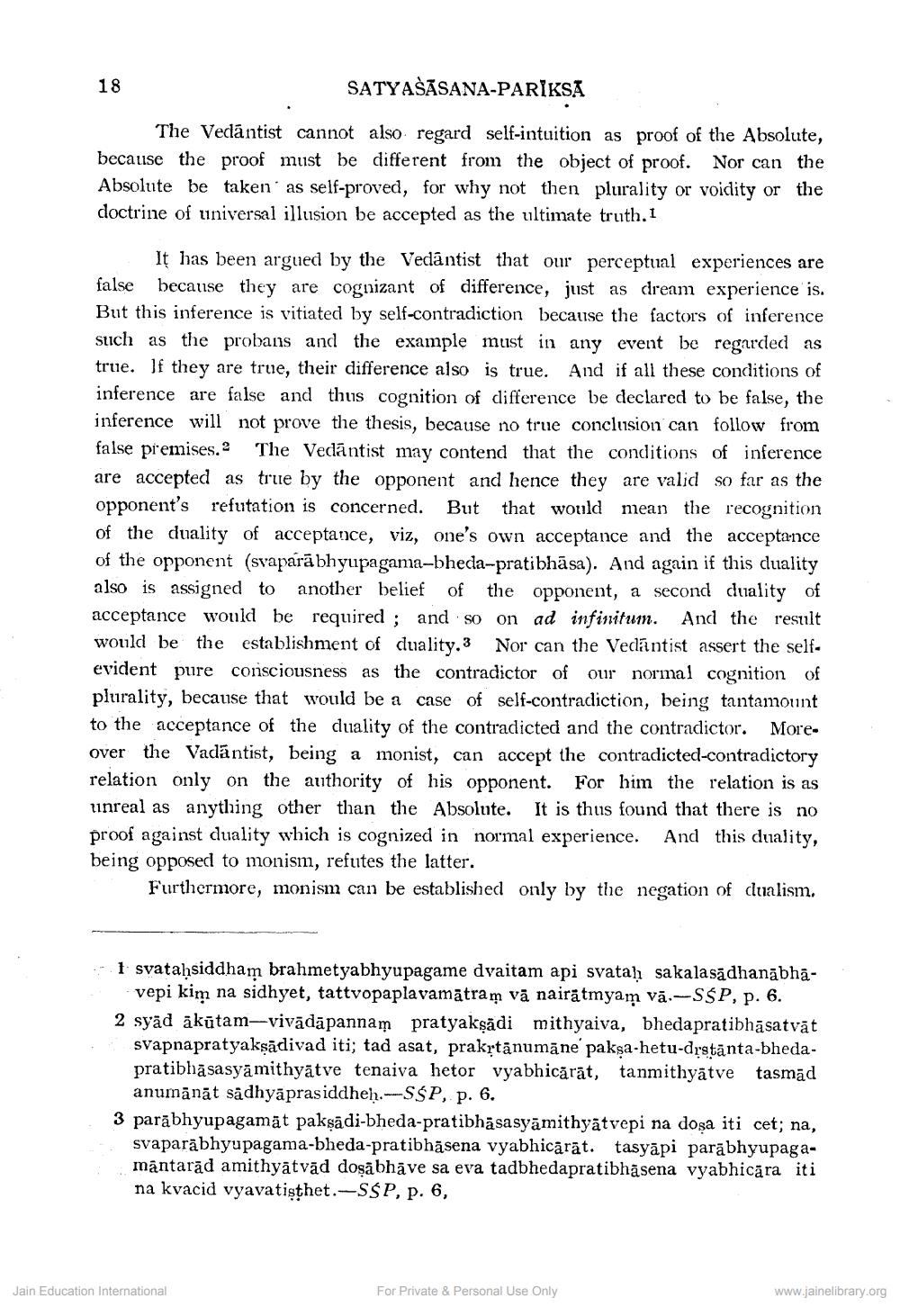________________
18
SATYAŠĀSANA-PARIKSA
The Vedāntist cannot also regard self-intuition as proof of the Absolute, because the proof must be different from the object of proof. Nor can the Absolute be taken as self-proved, for why not then plurality or voidity or the doctrine of universal illusion be accepted as the ultimate truth. 1
It has been argued by the Vedāntist that our perceptual experiences are false because they are cognizant of difference, just as dream experience is. But this inference is vitiated by self-contradiction because the factors of inference such as the probans and the example must in any event be regarded as true. If they are true, their difference also is true. And if all these conditions of inference are false and thus cognition of difference be declared to be false, the inference will not prove the thesis, because no true conclusion can follow from false premises. The Vedāntist may contend that the conditions of inference are accepted as true by the opponent and hence they are valid so far as the opponent's refutation is concerned. But that would mean the recognition of the duality of acceptance, viz, one's own acceptance and the acceptance of the opponent (svaparā bhyupagama-bheda-pratibhāsa). And again if this duality also is assigned to another belief of the opponent, a second duality of acceptance would be required ; and so on ad infinitum. And the result would be the establishment of duality, 3 Nor can the Vedāntist assert the selfevident pure consciousness as the contradictor of our normal cognition of plurality, because that would be a case of self-contradiction, being tantamount to the acceptance of the duality of the contradicted and the contradictor. More. over the Vadāntist, being a monist, can accept the contradicted-contradictory relation only on the authority of his opponent. For him the relation is as unreal as anything other than the Absolute. It is thus found that there is no proof against duality which is cognized in normal experience. And this duality, being opposed to monism, refutes the latter.
Furthermore, monism can be established only by the negation of dualism.
Isvatahsiddham brahmetyabhyupagame dvaitam api svatah sakalasādhanābhā
vepi kim na sidhyet, tattvopaplavamātram vā nairātmyam vā.-SŚP, p. 6. 2 syad akūtam-vivādāpannam pratyakşādi mithyaiva, bhedapratibhāsatvät
svapnapratyaksādivad iti; tad asat, prakrtānumāne paksa-hetu-drstānta-bhedapratibhāsasyāmithyātve tenaiva hetor vyabhicărāt, tanmithyātve tasmad anumānāt sådhyāprasiddheḥ.--SŚP, p. 6. 3 parābhyupagamāt pakşādi-bheda-pratibhāsasyāmithyātvepi na dosa iti cet; na,
svaparābhyupagama-bheda-pratibhāsena vyabhicärät. tasyāpi parābhyupagamântarād amithyātvād doşābhāve sa eva tadbhedapratibhāsena vyabhicāra iti na kvacid vyavatisthet.-SŚP, p. 6,
Jain Education International
For Private & Personal Use Only
www.jainelibrary.org




